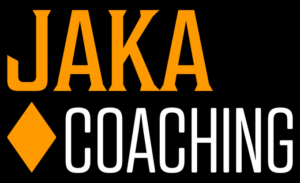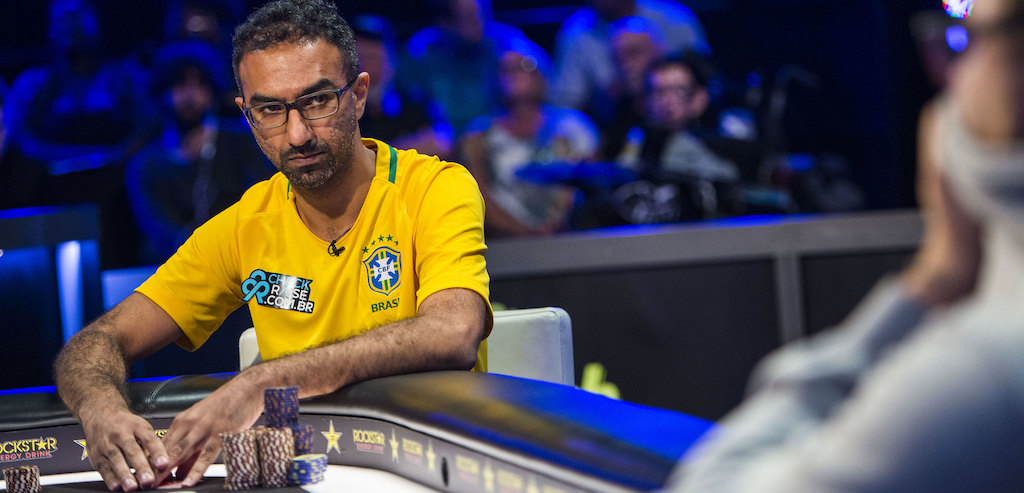Editor’s note: Poker pro Faraz Jaka’s new coaching site JakaCoaching.com, offers players plenty of training to improve their skills at the tables. He offers help for both live and online poker players, and offers a few tips for PokerScout readers below.
When playing poker, it turns out that it’s not that hard to turn a profit, if you’re willing to put in a little bit of work.
The majority of players you’ll face are in the game recreationally and sparingly, which means that with just a few tweaks in your routine, you can get way ahead of the curve.
[cta id=975 type=geo]
1 – Online poker play your way to success
After consuming new learning content, playing online poker is hands down the fastest way to improve your game. That’s simply because of the number of hands you get to see in such a short period.
If you learn a new strategy, that scenario might only come up a handful of times in a matter of months playing live poker. But online you may be put in that same spot several times in a matter of a single session.
Be sure you are tagging the tough hands you encounter to review later when you are under less pressure. You can do this by using a poker tracking software, or simply by taking screenshots of the scenario.
90% of the people who play poker lose 📉 longterm, yet in the current environment it’s still so easy to get yourself into that 10% who win📈
You simply have to do what those 90% aren’t doing 🧐
Here are the 3 things you need to do, to be ahead of your competition 👇
— Faraz Jaka (@FarazJaka) April 13, 2022
2 – Master the big concepts
With the endless amount of training content out there, it can be hard to know where to start. You want to prioritize the scenarios that come up the most often and also for the most amount of money.
Here is the order I recommend to my students from my group coaching program , where we focus on tournament strategy.
Constructing three-bet ranges without having to memorize charts
Two common mistakes I see on this concept from players are not:
- having enough three-bet bluffs.
- three-betting enough with hands that don’t play well multiway.
- adjusting your three-bet range based on stack size.
For finding good candidates to three-bet bluff, there are two rules of thumbs I like to use. The first is to choose hands that are on the border of your calling range that also have good blocker qualities like an Ace-King or Queen in it.
If you kind of want to call a raise with a hand but it feels a little borderline, and it has decent blockers, then it’s probably a good three-bet bluff candidate. The second rule of thumb is to pick hands that when you three-bet bluff with it, you are getting several better hands that dominate your hand to fold.
 For example if your opponent will fold Q-J offsuit, K-J offsuit, and Q-10 offsuit, then Q-9 suited is a great three-bet bluff candidate. On the contrary, Q-J suited is probably not a good bluff candidate because your opponent isn’t folding K-Q or A-Q and you want to keep all those hands that you dominate in the pot.
For example if your opponent will fold Q-J offsuit, K-J offsuit, and Q-10 offsuit, then Q-9 suited is a great three-bet bluff candidate. On the contrary, Q-J suited is probably not a good bluff candidate because your opponent isn’t folding K-Q or A-Q and you want to keep all those hands that you dominate in the pot.
For three-betting hands that don’t play well multiway, this mostly comes into play when you’re in middle or early position, facing a raise, and there are a lot of people behind you who may call behind. You might want to take your offsuit hands, like A-Q and A-J, and three-bet them just to kick everyone behind out.
Whereas hands like A-Q suited and A-J suited you can flat because they play well multiway. The same goes with hands like pocket Tens and Jacks you can mix in as calls or three-bets from those positions for the same reason. The exact strategy varies based on stack size, but this logic will help guide your decision making with those hands
The hands you are going to three-bet should vary based on stack size. When you are very deep stacked, you don’t have the risk of the player shoving all in. You can comfortably three-bet all your suited connectors and suited Broadways comfortably, knowing that you’ll almost always get to see the flop and not get blown off such a nice hand.
Whereas when you are shallow stacked like 30 big blinds deep, you have the risk of your opponent four-betting all in and forcing you to fold. For this reason, at shallower stacks we need to pick a more polarized strategy, meaning three-betting worse hands that we don’t mind wasting, in case we get blown off them.
We will also be choosing hands that are much more blocker heavy to three-bet with when we are shallow stacked, and not suited connectors like we might at deeper stacks.
Other key concepts
Beyond this concept, there are five other major areas I focus on as well when coaching players. Nailing down these key five areas will have you not only up to date, but ahead of the curve in 2022. That goes for just about every part of the decision tree you’ll face in poker tournaments.
- Continuation betting versus the big blind
- Check-raising versus the big blind
- Bluff catching versus triple barrels
- Maneuvering a short stack
- Post-flop play in three-bet pots
How to win @ poker:
✅Document hands live or use poker tracker online. If not sure how DM, I’ll share how I do it. Review hands weekly
✅Be part of a group =motivated as yourself to improve. Discuss hands, game selection & best practices
✅Consume high quality learning content
— Faraz Jaka (@FarazJaka) April 13, 2022
3 – Discuss and dissect
Lastly, being part of a community to discuss hands with others and learn about best practices is probably the single most valuable thing that has helped me get to where I am in my poker career today.
You can easily be doing something wrong, using outdated resources, or missing out on the best games to play for years.
But by having a knowledge source from a group of players you’ll know about these best practices well ahead of others.
To help my students benefit from this, I’ve created my own Discord group that is open to the public. There are also some extra private channels for members of my training site. Join the discord group and be sure to introduce yourself!
Faraz Jaka is the Season VIII World Poker Tour player of the year and has more than $10 million in tournament winnings. He hosts weekly two-hour training sessions focused on tournament poker strategy at Jakacoaching.com. Players can become a member for $99 per month. All sessions are recorded and members also get access to a library of 60-plus previous training lessons on various topics.
Faraz is also hosting an eight-week World Series of Poker prep series, helping players get up to speed and ahead of the curve before that 2022 trip to Las Vegas. Each week features a two-hour live and interactive lesson. There will be quizzes on the spot and Faraz will help fine tune your logic in how to think through hands. All sessions will be recorded and added to the library of 50+ previous lessons.
